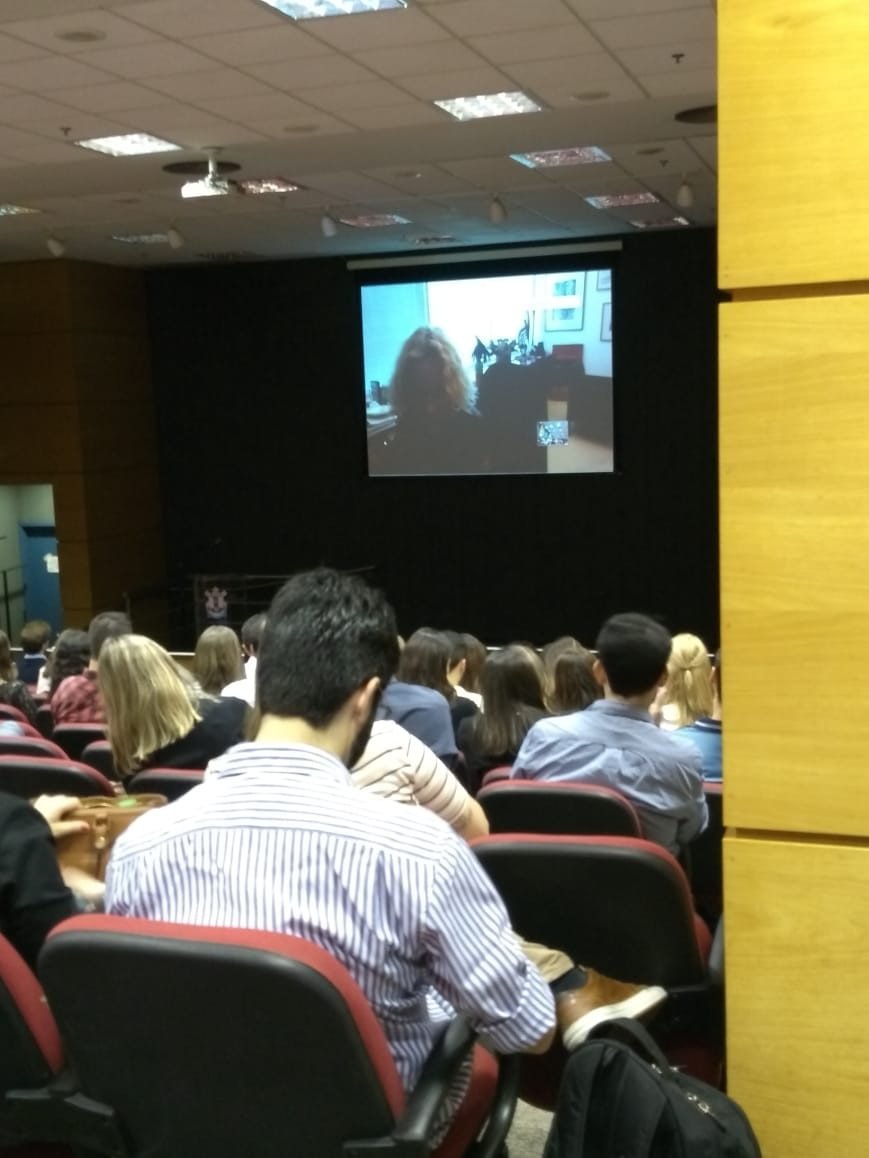Nora Volkow discusses complexity of substance abuse
Being in the list of the 100 women whose power, talent or moral example is transforming the world, according to Time Magazine, psychiatrist Nora Volkow delivered a live video conference, from the United States, to PUCRS students and faculty on Oct 2. The expert leads one of the most important institutes on drug addiction in the world, the United States National Institute on Drug Abuse (Nida), and delivered a lecture after an invitation from School of Medicine professor and Brain Institute of RS, researcher, Dr. Rodrigo Grassi.
In her 1-hour long talk, she talked about the complexity of chemical dependency, which not only involves biology but also behavior. “In the first five years of life, the environment in which the child lives is more relevant than the genetics itself”, she said. Volkow claims that drug addiction involves multiple factors and usually occurs during adolescence, when young people are most vulnerable to drug use. The way she sees it, this happens because teenager the brains are different from adult brains.
Generally, individuals have more neurons at birth, but less connectivity between them. Over the years, the number of neurons decreases, but connectivity increases. If these connections are healthy, the brain enters adulthood without being compromised. However, if individuals begin doing drugs early, for example, the brain loses its connections. This may lead to chemical modifications and reduced functions.
She also touched upon the controversial issue of marijuana use and, without arguing for or against drug, said there were several studies pointing to an impact on the development of brains of addicted people. This contradicts the idea that Marijuana is harmless. “The adverse effects are still unclear, but we have many studies showing health problems arising from chronic use of marijuana”, she says.
Volkow, who has written more than 500 articles and three books on the use of neuroimaging in the study of psychiatric disorders and additives, sees that drug treatment is only available for nicotine, alcohol and opioid addicts (pain medicine). For all other drugs there is no treatment that cures addiction. Addicts can benefit greatly from a network of family and friends to provide support to them. The environment where they live is also important as it also inhibits behavioral, not just biological, aspects.
About Nida
The mission of National Institute on Drug Abuse (Nida) is to promote scientific studies on the causes and consequences of drug use and dependence and apply the insights gained to improving individual and public health. This involves supporting and strategically conducting basic and clinical research on drug use (including nicotine), its consequences, and the underlying neurobiological, behavioral, and social mechanisms involved. This also involves the translation, implementation and dissemination of scientific research findings to improve the prevention and treatment of substance use disorders as well as people’s awareness of addiction as a brain disorder.


